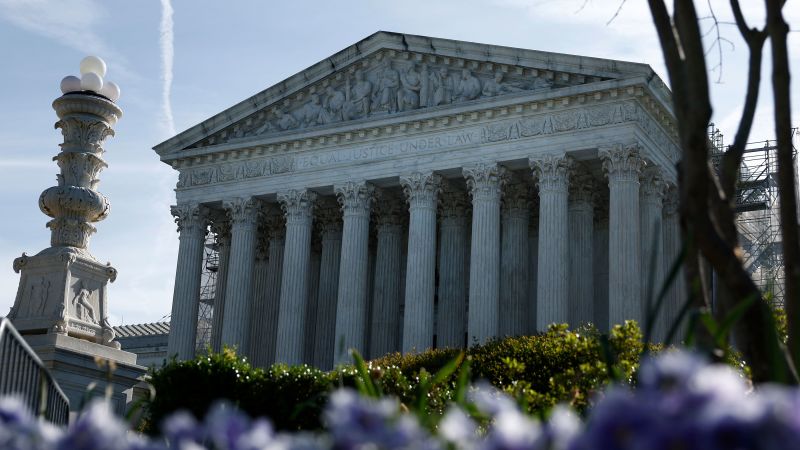In a significant blow to the Biden administration’s efforts to reduce smog and air pollution across state lines, the Supreme Court on Thursday sided with Republican-led states and industry groups in a decision that undermines federal environmental protections.
The court’s ruling grants a stay on the Environmental Protection Agency’s “good neighbor” plan, which aimed to impose strict emission limits on power plants and industrial sources in upwind states to reduce pollution for downwind states. This decision, written by Justice Neil Gorsuch in a 5-4 majority opinion, places implementation of the Biden program on hold as a complicated legal battle unfolds.
Justice Amy Coney Barrett wrote a dissent, joined by the three liberal justices, expressing concerns about the quick intervention of the court without the full development of the case’s record in lower court proceedings. The decision represents a setback to environmental regulators and President Joe Biden’s climate and environmental agenda.
Biden officials and downwind states such as New York, Connecticut, and Delaware warned of potential health risks, including dangerous ozone spikes, if the court sided with Ohio, Indiana, and West Virginia, who filed the emergency appeal. The EPA expressed disappointment with the ruling but emphasized that the stay was not a final decision on the legality of the smog rule.
The Biden administration vowed to continue taking action to protect communities from pollution, while opponents of the plan cited concerns about stressing the country’s power grid. The Clean Air Act requires the EPA to review interstate pollution rules periodically to align with health guidelines, a process that saw updates during the Obama administration and now under Biden.
This decision comes during a pivotal election year where climate action is a top priority for many young voters. It is the first of two opinions expected to have major implications for EPA regulations, with the second case potentially overturning a decades-old legal test known as the Chevron deference. Justice Gorsuch, a lead advocate for overturning Chevron, has a history of anti-environmental regulations within his family.











